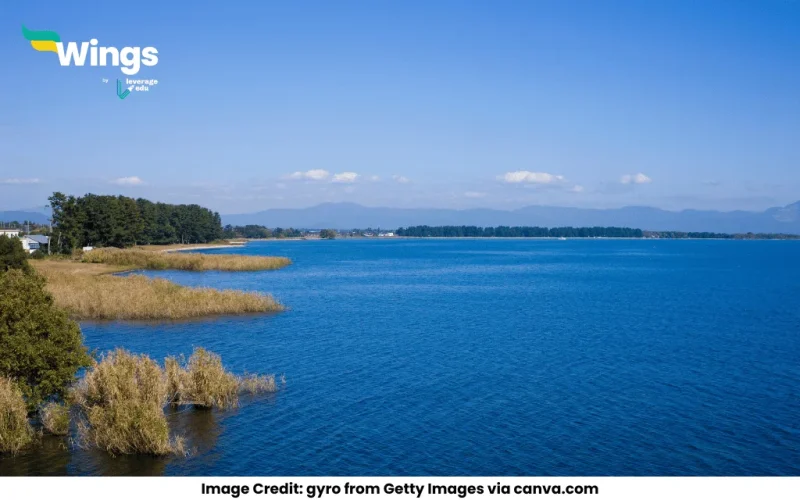Answer: Wular Lake: The Largest Freshwater Lake in India
Wular Lake, located in the union territory of Jammu and Kashmir, is the largest freshwater lake in India. This magnificent lake, spread over approximately 200 square kilometres, is a vital water body that supports biodiversity, local livelihoods, and ecological balance.
Geographical Significance
Wular Lake is situated in the Bandipora district of Jammu and Kashmir and is primarily fed by the Jhelum River. The lake’s size varies throughout the year due to seasonal changes in water levels, ranging between 30 to 260 square kilometres. The surrounding Pir Panjal mountain range adds to its scenic beauty, making it a significant landmark in the region.
Ecological Importance
As a Ramsar Wetland Site, Wular Lake plays a crucial role in maintaining ecological balance. It serves as a natural flood reservoir, absorbing excess water from the Jhelum River and preventing floods in the Kashmir Valley. The lake is also home to diverse flora and fauna, including migratory birds, fish species like Common Carp and Snow Trout, and aquatic vegetation that supports the local fishing industry.
Economic and Cultural Importance
Wular Lake sustains thousands of fishermen and local communities who rely on its waters for fishing and aquatic vegetation harvesting. The lake is a source of livelihood for many and provides water for irrigation and domestic use. Additionally, it holds cultural and historical significance, as it has been mentioned in various ancient texts and local folklore, adding to its rich heritage.
Tourism and Attractions
The picturesque setting of Wular Lake attracts nature enthusiasts, bird watchers, and adventure seekers. Tourists can enjoy activities like boating, fishing, and photography while experiencing the serene beauty of the surrounding mountains. The nearby Nal Sarovar Bird Sanctuary further enhances its appeal as a prime destination for wildlife lovers.
Threats and Conservation Efforts
Despite its significance, Wular Lake faces multiple environmental threats, including pollution, encroachment, and sedimentation. The shrinking size of the lake due to human activities and deforestation has raised concerns among environmentalists. Conservation initiatives by the government and non-governmental organizations aim to restore and protect the lake by reducing pollution and promoting sustainable tourism.
Wular Lake is not just the largest freshwater lake in India but also a lifeline for many communities and a vital component of the region’s ecosystem. Efforts to preserve and restore this natural treasure are crucial for maintaining its ecological and economic benefits for future generations.
Common Doubts
 45,000+ students trusted us with their dreams. Take the first step today!
45,000+ students trusted us with their dreams. Take the first step today!


 One app for all your study abroad needs
One app for all your study abroad needs










